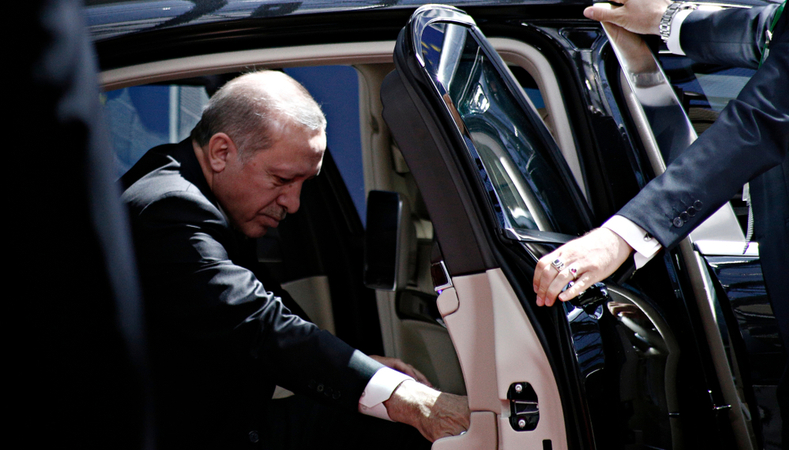Erdogan made Turkey the largest prison in Europe

Turkey has been ranked first among member states of the Council of Europe (CoE) for its annual incarceration rate, with a record number of inmates convicted for terrorism offenses.
Last year, the Turkish parliament adopted a controversial law to release about 45,000 prisoners to ease overcrowding in prisons and protect detainees from the pandemic. However, the amnesty law was found to be politically biased as several drug dealers and mafia bosses were released while dissident journalists and politicians were excluded.
The Council of Europe released its Annual Penal Statistics report on Thursday: Turkey topped the list with an incarceration rate of 357.2 inmates per 100,000 inhabitants.Turkey was followed by Russia, Georgia, Lithuania, and Azerbaijan in the report. According to the report, about 300,000 people, including pre-trial detainees, are behind bars in Turkey. That makes Erdogan’s regime the highest incarceration rate among Council of Europe members states, with a rate of 357.2 inmates per 100,000 inhabitants, according to a report of the international body.
Turkey was followed by Russia (356 inmates per 100,000 inhabitants), Georgia (264), Lithuania (220) Azerbaijan (209), Czech Republic (197), Poland (195), Slovak Republic (193) and Estonia (184), according to the Council of Europe’s Annual Penal Statistics on Prison Populations for 2020. The figures were valid as of Jan. 31, 2020. Based on the proportion of the number of prisoners to the number of places available in penal institutions, Turkish penitentiaries were also found to be the most overcrowded in the CoE report, with 127 inmates per 100 available places. Turkey was followed by Italy in the report.
Read more : Turkey sent a new batch of Syrian mercenaries to Libya
Of 30,524 inmates condemned for terror charges in the European continent, the majority, 29,827 people, were found in Turkey only. Terrorism malfeasances are broadly defined in Turkish laws under which dissident activities such as attending demonstrations and exercising critical journalism are punished; disregarding European Court of Human Rights judgments. Most of the inmates in Turkey are not real criminals, but journalists, political opponents of the Erdogan regime, and civil activists.
The Council of Europe has frequently asked that Ankara immediately release from prison the prominent businessman and activist, Osman Kavala, and the Kurdish politician, Selahattin Demirtas, after their years-long custody based on political reasons.The country also has Europe’s second-largest prison population, at 297,019, after Russia. Over the past ten years, the incarceration rate in Turkey has increased by 115.3 percent. A data considered highly concerning by EU member states.
Separately, the ruling Justice and Development Party (AKP) is operating on legal amendments to digitally record and retain all visits to inmates for one year — a move that has been criticized by the opposition as a serious invasion of prisoners’ privacy.
Opposition delegates have called on the AKP to withdraw its questionable bill, saying inmates’ private lives need to be preserved.Turkish penitentiary institutions made headlines recently after opposition party claims about the use of illegal strip-searching of women as a degrading method.




